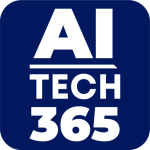New MarketCast Ad Effect Express solution combines human research with proprietary AI to better predict advertising performance
Marketing research and intelligence company MarketCast launched MarketCast Ad Effect Express, an innovative new advertising testing solution that brings together the power of human research with AI to better predict how TV, CTV, and digital advertising will perform across different audience segments.
Typical advertising testing is either survey-driven, with people watching ads and responding to researcher questions, or powered by AI models to predict human reactions with little human input. The human-powered research is in-depth, but often expensive and slow. And the AI-powered models are speedy but are often built upon narrow, outdated research and audiences that are too broad. MarketCast Ad Effect Express combines the best of both worlds, delivering speed, scale, and accuracy, with cost efficiencies.
Also Read: Conversica Unveils Advanced AI Message Customization
“Many of today’s AI-powered ad testing solutions sacrifice quality for speed by cutting humans out of the process,” said John Batter, CEO of MarketCast. “At MarketCast, we believe AI should amplify the voice of consumers in advertising research, not replace them. That’s why MarketCast Ad Effect Express gives advertisers a smarter, faster, and more cost-effective way to test ads—without losing the power of the human connection.”
Looking under the hood, MarketCast Ad Effect Express is powered by MarketCast’s proprietary Audience AI, which uses fresh survey data as a foundation to train the AI models to amplify audience size and project how real people will react to advertising. This allows advertisers to capture the subtle nuances of human opinions that AI solutions alone could miss. It also gives them access to hard-to-reach audiences without the heavy costs associated with obtaining audience sample.
MarketCast Ad Effect Express delivers ad testing research within 24-48 hours of submission and features facial and eye tracking to pinpoint second-by-second emotional reactions to ad creative. Additionally, it allows for responses to open-ended questions, which provides more context about advertising predictions, telling brands the reasons why (or why not) their ad creative will perform well once it’s in front of consumers.
Source: PRNewswire

